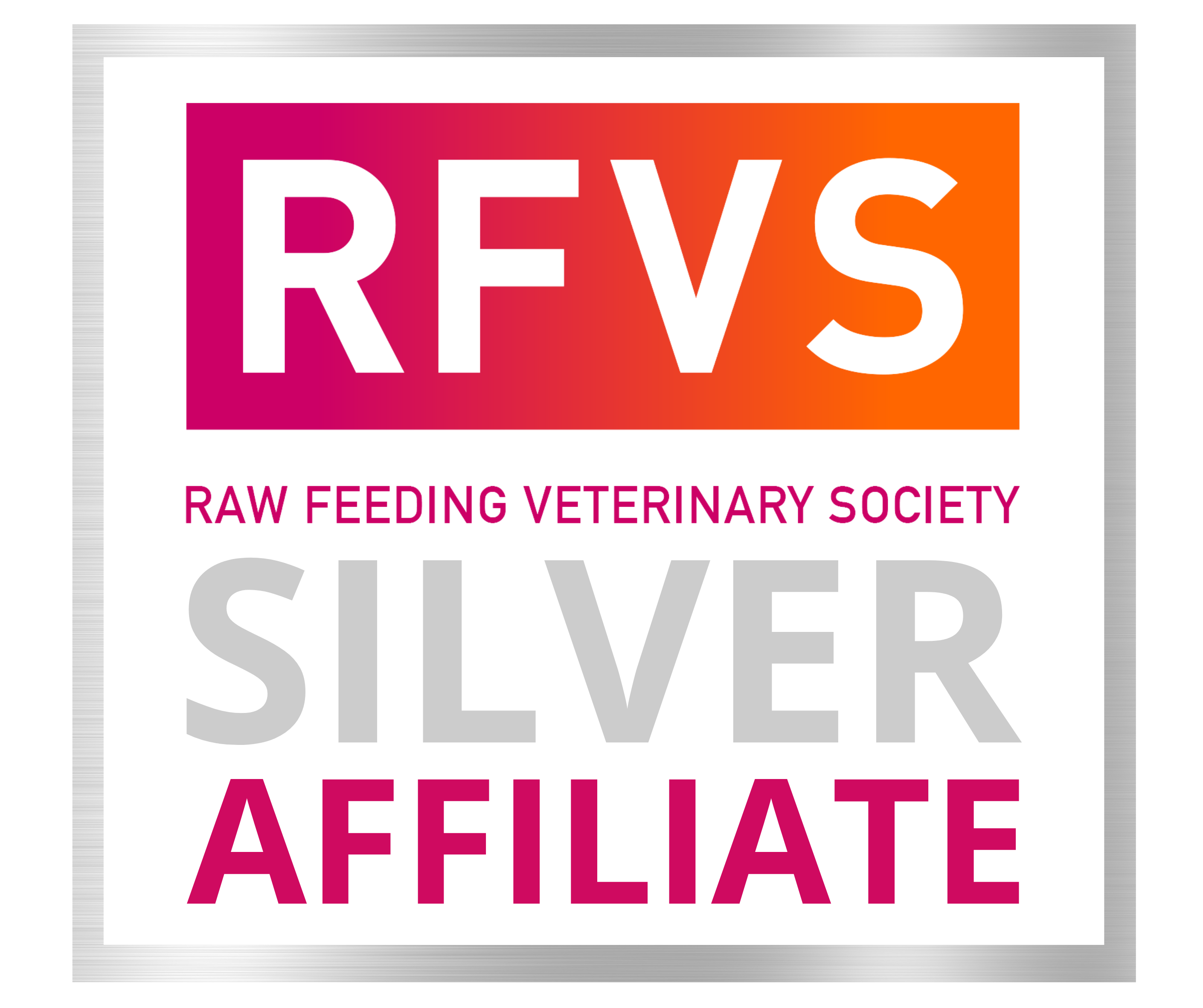Food Safety Tips
HANDLING & FEEDING RAW MEAT
- Raw Essentials products are frozen for at least 10 days before they are sold. If you buy fresh meat from the butcher, freeze it for at least 3 days before feeding to your pet.
Defrost in a sealed container in the fridge overnight, or in a bag submerged in warm water (not in the microwave). Check the bag is intact before submerging so that you don’t lose any precious juice!
Defrost your pet’s food each day. You may use food that has been in the fridge for up to 3 days - however fresh is best!
Feed all juices to your pet – they contain great nutrients.
Clean surfaces, equipment and your hands after feeding. Use anti-bacterial cleaners. Do not allow pets on countertops.
- Immunocompromised people should use utensils or disposable gloves. Where possible, the role of feeding pets should be given to a non-immunocompromised member of the household.
- Discard any uneaten raw food that your pet leaves after the meal (there is usually nothing left to discard - if there is, you may be feeding too much).
GENERAL HYGIENE PRACTISES
- Love your pets, but please don’t kiss them! This may lead to illness.
- Wash your hands with anti-bacterial soap between playing with your pet and eating.
- Keep your pet’s digestive system and gut flora in optimal condition. This will help to protect them from ill-health in general, as well as from disease caused by pathogens. Please chat to us if there are any signs of digestive issues.
- Minimise stress on the digestive system: avoid mixed-feeding (exclude all grains and starches).
- Wear gloves when emptying litter trays daily and disposing of pets' stools.
- Extra vigilance is required for individuals who are pregnant or immunocompromised, or if there are babies or small children in the home. Discuss this with your health professional if it applies to you.
In summary, control the risk of infection from all pet foods by:
- Providing a carefully planned and well sourced, species-appropriate raw food diet, and
- Ensuring sensible meat hygiene practises in the home

